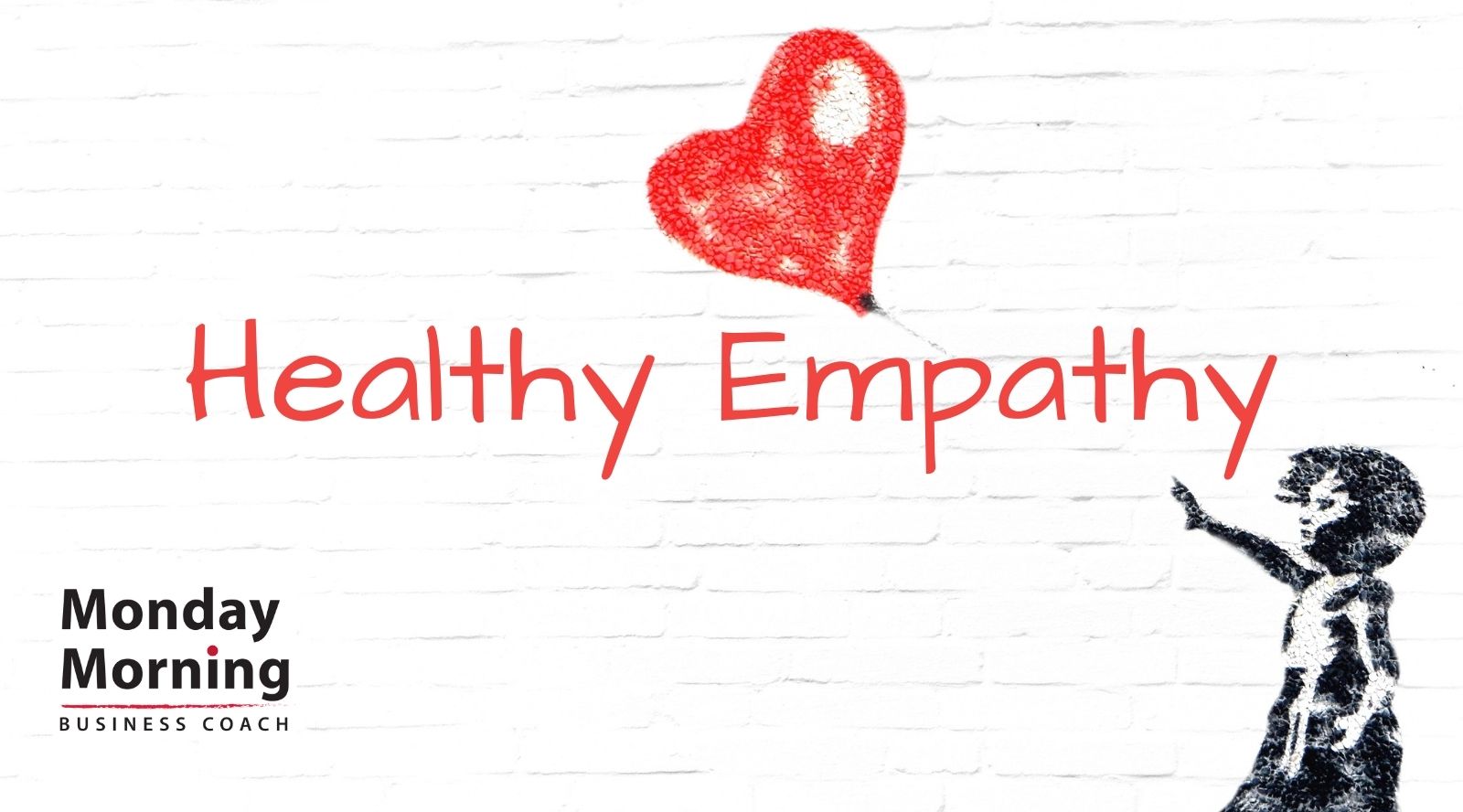Over the last couple weeks, we’ve been talking about the importance of Listening to Yourself and Listening to Others, and some suggestions on how you can do both of those things.
In response to these posts, a number of you have written to ask how to listen deeply and have empathy for others without losing yourself in their concerns. Others have asked, “What is empathy, really?”
Today, we’re talking about empathy – what it is and what it’s not. AND, how to have it while maintaining your boundaries.
The most resilient and inspiring leaders
are those who have
a healthy amount of empathy
and can maintain healthy boundaries.
When you have too much empathy without clear boundaries, you can easily get caught up in the emotions of others. It’s not helpful for us to take on other people’s pain. What’s important is to be there with them as they experience it. Trying to take their pain away or getting too caught up in it is disrespectful of their process.
On the other hand, some of us find we don’t have enough empathy and perhaps don’t listen deeply. This can happen when our boundaries are more wall-like and we aren’t able to put ourselves in another’s shoes.
To support you, we’ve put together a list of our top suggestions to help you see what healthy empathy looks like.
Be compassionate and curious.
Often, people just want to be heard. If you’re unsure, you could simply ask, “What type of support would be helpful for you today?”
Then, trust that they will tell you if they’re just looking to vent, or get a pep talk, or even some advice.
Just be there.
If you’re constantly trying to find the right solution to fix their problem, you may find yourself adding to their stress or anxiety (or your own).
You’ll find that you can more fully listen when you’re not trying to also problem-solve.
If you feel you need to say anything, you can simply say, “Tell me more.”
Keep your emotions separate from theirs.
It’s okay to care deeply for people. It’s okay to want them to be happy and see the possibilities and joys in life.
Despite what you believe, you don’t have the power to actually change someone else’s emotional state. And, it’s very important to not let their emotions overpower you.
If you feel caught up in their pain, anxiety, or pessimism, then you need to put a little emotional distance between you and them. You can say, “I’m sorry this is hard for you,” without taking it on as yours.
If you’re concerned about someone’s emotional state and are afraid for them, that’s a different matter. At that point, you may need to encourage them to get additional support from someone who is trained.
This week, as you’re listening to others and listening to yourself, pay attention to your empathy and your boundaries to assess if they’re helping you support the people you most care about.
Let us know how it goes.
If you’re having a difficult time
with too much or too little empathy,
and would like support, contact us today.


